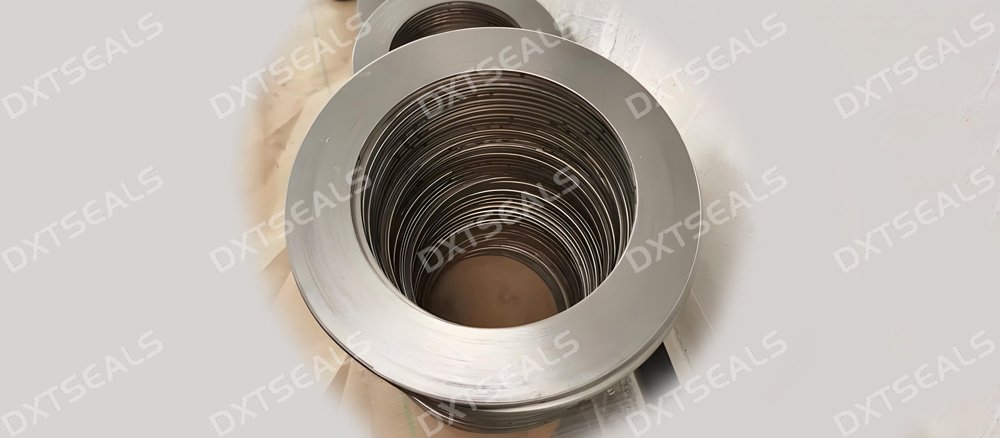
In industrial applications, choosing the right gasket material is essential for ensuring a tight, secure seal between two surfaces. Metal gaskets are highly effective in providing durable, reliable sealing solutions, especially in environments where high pressures, temperatures, and harsh chemicals are involved. Metal gaskets come in various types, each offering specific benefits suited to different industrial needs. In this article, we’ll explore the different types of metal gaskets and their advantages in sealing solutions.
What Are Metal Gaskets?
Metal gaskets are sealing components made from a variety of metals or metal alloys, designed to prevent leakage between joined surfaces. They are commonly used in high-pressure, high-temperature, and corrosive environments, where traditional rubber or soft gaskets may not be effective. Metal gaskets are known for their strength, durability, and resistance to chemical exposure, making them essential in many industrial and mechanical systems.
Types of Metal Gaskets
-
Spiral Wound Gaskets
Description: Spiral wound gaskets are made from alternating layers of metal strip and a filler material, typically graphite or PTFE. The metal provides structural strength, while the filler material ensures a tight seal. These gaskets are commonly used in applications involving high temperature and pressure.
Advantages:
- Excellent sealing properties under high pressure and temperature.
- Resistant to corrosion and chemical attack.
- Suitable for flanged joints in industries such as oil and gas, chemical processing, and power generation.
-
Ring-Type Joint (RTJ) Gaskets
Description: Ring-type joint (RTJ) gaskets are made from solid metal rings, often manufactured from materials like carbon steel, stainless steel, or alloy steel. These gaskets are designed to fit into grooves on flanged connections, ensuring a leak-proof seal.
Advantages:
- Ideal for high-pressure systems such as pipelines, valves, and compressors.
- Resistant to extreme temperatures and pressure.
- Strong, reliable, and capable of withstanding harsh environments.
-
Kammprofile Gaskets
Description: Kammprofile gaskets feature a solid metal core with a grooved or serrated profile. This design allows for a flexible and compressible gasket that maintains an effective seal even under fluctuating pressure.
Advantages:
- High sealing ability under extreme temperature and pressure conditions.
- Easy installation and cost-effective.
- Good for applications involving flanged joints with irregular surfaces.
-
Metal Jacketed Gaskets
Description: Metal jacketed gaskets consist of a metal shell surrounding a soft filler material, such as asbestos or graphite. These gaskets provide a robust seal while protecting the filler material from damage or contamination.
Advantages:
- High strength and resistance to compression set.
- Ideal for sealing high-pressure systems, heat exchangers, and piping.
- Provides a leak-tight seal and good thermal conductivity.
-
Corrugated Gaskets
Description: Corrugated gaskets are made from thin metal sheets that are corrugated to increase flexibility and compressibility. The metal is typically stainless steel, and the gaskets are commonly used in applications requiring a tight seal under varying pressure conditions.
Advantages:
- Provides excellent flexibility and adaptability to irregular surfaces.
- Resistant to high temperature and pressure.
- Effective for sealing systems in the automotive, HVAC, and chemical industries.
-
Compressed Fiber Metal Gaskets
Description: These gaskets are a combination of metal and compressed fiber material, providing a flexible seal with the strength of metal and the compressibility of fiber. They are typically used in less extreme conditions compared to pure metal gaskets.
Advantages:
- Good for medium-pressure applications.
- Offer a balance between strength, durability, and sealing capability.
- Cost-effective solution for sealing in a variety of industrial applications.
Advantages of Metal Gaskets
-
High-Temperature Resistance
Metal gaskets can withstand extreme temperatures, making them ideal for applications in industries like aerospace, power generation, and petrochemical plants where high heat is present. Their ability to maintain structural integrity in high-heat environments makes them a preferred choice in many industrial settings.
-
Chemical and Corrosion Resistance
Many metal gaskets are designed to resist corrosion from harsh chemicals and environmental factors. For industries such as oil and gas, chemicals, and pharmaceuticals, metal gaskets are essential for ensuring the safety and reliability of systems exposed to corrosive substances.
-
Pressure Endurance
Metal gaskets are known for their ability to handle high pressures, making them perfect for sealing applications in critical systems such as pipelines, valves, and compressors. They are designed to maintain their sealing capabilities even under high-stress conditions.
-
Durability and Long Lifespan
Due to their robust construction, metal gaskets have a long service life compared to traditional sealing solutions. This durability makes them ideal for demanding applications where maintenance and replacement costs are high.
-
Leak Prevention
One of the primary functions of any gasket is to prevent leaks, and metal gaskets excel in this area. Their solid construction and ability to conform to the mating surfaces provide a reliable, leak-free seal, crucial for maintaining the integrity of the system.
-
Customizability
Metal gaskets can be custom-designed to meet specific requirements for different industrial applications. Whether it’s the choice of material, size, or shape, metal gaskets can be tailored to provide the best sealing solution for any system.
Conclusion
Metal gaskets are an indispensable part of industrial sealing solutions, offering unmatched performance in extreme conditions. Whether it’s for high-temperature, high-pressure, or chemically aggressive environments, there’s a type of metal gasket suited to the application. From spiral wound gaskets to metal jacketed gaskets, each type brings unique advantages to the table. By understanding the different types of metal gaskets and their benefits, you can select the right gasket for your sealing needs, ensuring optimal performance and durability for your systems.
